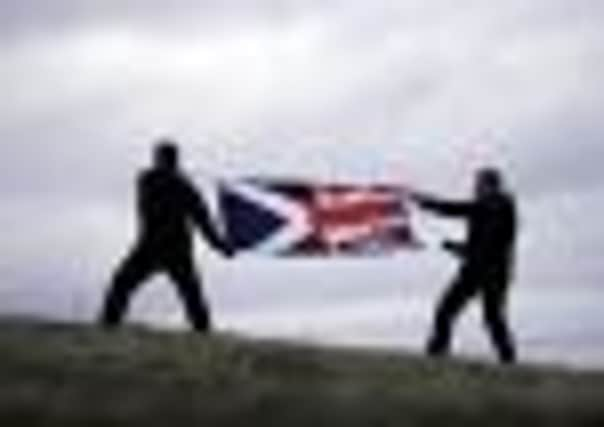Ian Swanson: Home rule support wanes as nation baulks at compromise


UNTIL just a few weeks ago, it could be argued that Alex Salmond had the upper hand in the independence debate.
Despite the absence of any groundswell of support for the cause and consistent evidence from the opinion polls suggesting that Scots did not want a separate Scotland, the First Minister’s force of personality and his unparalleled success in winning an overall majority in last year’s Holyrood election created the sense that anything was possible.
Advertisement
Hide AdAdvertisement
Hide AdThe weakness of the anti-independence parties – Labour uncertain about what it wanted, the Lib Dems decimated and Scottish Tory leader Ruth Davidson repeatedly undermined by David Cameron – did nothing to counter the feeling that there was a real chance for the SNP to fulfil its ambitions.
But now the mood has changed. An opinion poll this week showed a record gap between those in favour of independence and those against. A full 50 per cent of Scots said they were opposed and only 30 per cent were for. Those findings must be a major disappointment to the SNP, which has devoted itself since winning power in 2007 to proving to the voters it is a responsible, competent and trustworthy party in tune with the instinctive values of the majority of Scots, and then trying to persuade them that a vote for independence is not a leap in the dark but a sensible step forwards.
In the process, Mr Salmond and his colleagues have been happy to abandon any notion that their aim was an independent socialist republic and make clear they would keep the Queen as head of state. They have cultivated the business community to minimise the predictable threats of companies relocating if Scotland goes it alone. They have emphasised the “social union” and assured people their favourite TV programmes and visits south of the border will not be affected. There has been talk of continuing to share some organisations – for some reason the DVLA is the favourite example. And in the face of the euro crisis, the SNP also opted to stick with the pound.
It all seemed to make sense even if it might not fit with everyone’s idea of what independence would mean.
But when the SNP tried to argue that Scots would “still be British” after independence because Scotland was still in the British Isles, credibility began to collapse. It must have come as a bit of a shock to many SNP activists to be told that, after all their campaigning for an independent Scotland, the end result would be that their Britishness remained intact.
Mr Salmond’s claim that Scotland would get a seat on the Bank of England’s Monetary Policy Committee, which would continue to set interest rates after independence, was quickly shot down.
And the prospect of a London-based institution having so much influence over an independent Scotland’s economic position was seen to undermine the very basis of the SNP’s case.
The SNP’s strategy of reassurance and promise – neatly summed up by Alistair Darling as telling people that “everything will change but nothing will change” – was a good one, but it seems to have run into trouble and allowed the anti-independence campaign, which still has its own problems, to seize the advantage.
Advertisement
Hide AdAdvertisement
Hide AdBut there’s still a long time to go before Scots are asked to vote on independence. There are bound to be many twists and turns in the campaign between now and autumn 2014.
And there is nothing to say the mood won’t swing back towards the SNP again.
For instance, if current political fortunes shift and the prospect of another spell of Tory government is looming large as the referendum approaches, especially if it were to be free from Lib Dem constraints, the urge among Scots to vote for independence might well become stronger.
Popping the question
the Electoral Commission has rebuffed moves by Scotland’s main opposition parties to revise the proposed wording of the referendum question.
The unionist parties have recruited election experts to produce an alternative to the SNP’s question “Do you agree that Scotland should be an independent country?” because they claim it invites a positive response and is therefore biased. However, the commission said it would not offer a view on any proposal the experts came up with.
Commissioner John McCormick said: “It’s for the relevant government to propose a question. This should be independently and transparently assessed before it is put to Parliament for approval as part of a clear statutory process.”